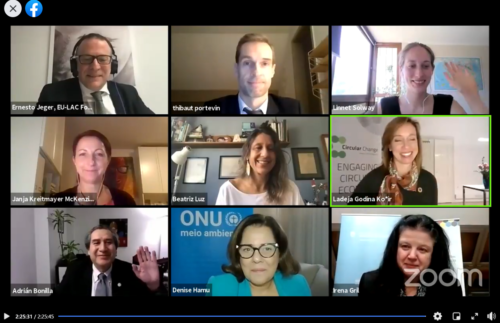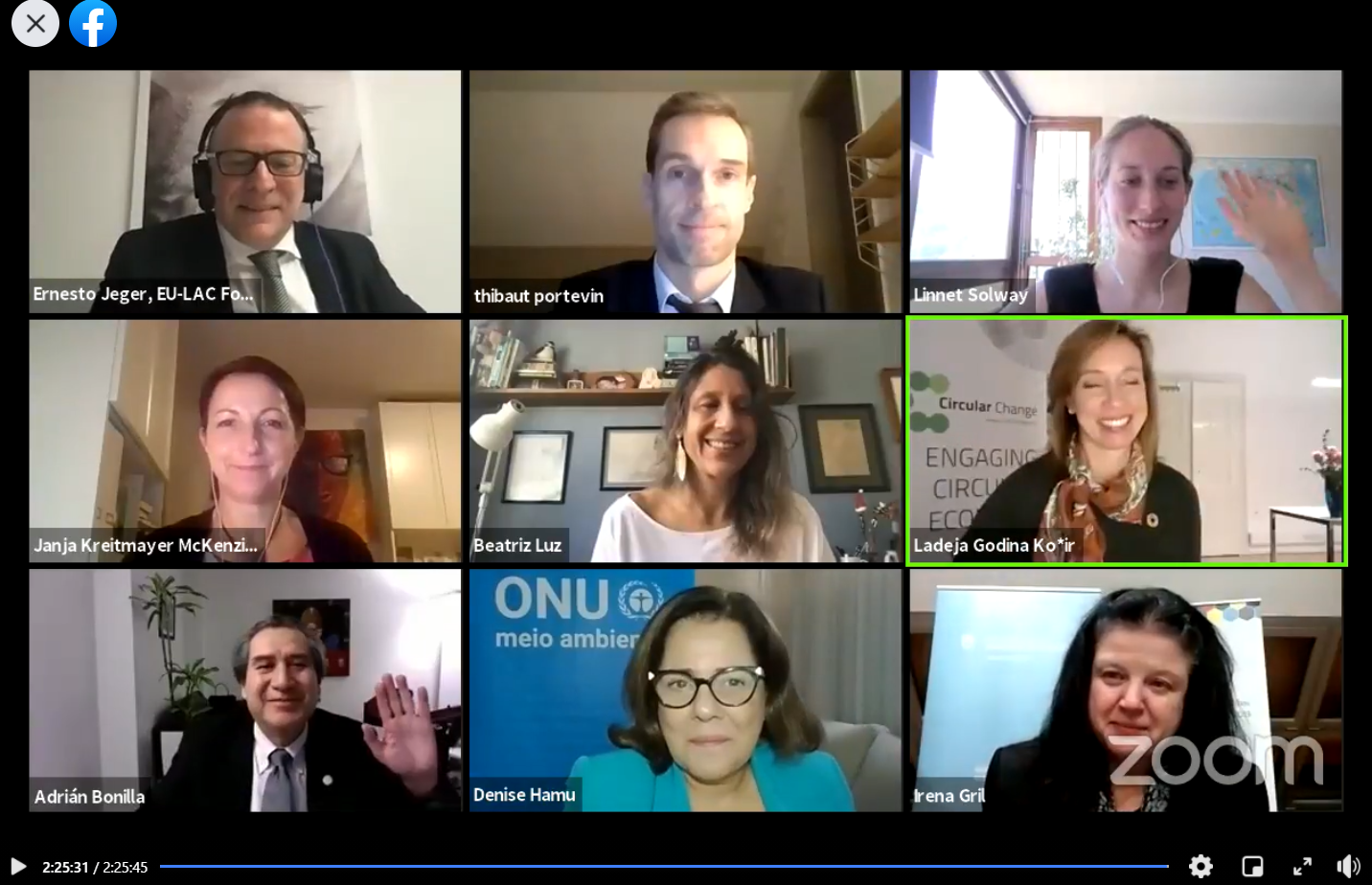A report now documents insight from the webinar “Circular Economy in the COVID-19 Era: Challenges and Opportunities” jointly organised by the Ministry of Foreign Affairs of the Republic of Slovenia and the EU-LAC Foundation in November 2020. The Webinar collected experiences and good practices, shed light upon projects and progress in the transition to a Circular Economy. Additionally, it raised awareness of the importance of circularity as an alternative to traditional notions of a linear economy. In particular, the potential of a circular economy for a green recovery post-COVID-19 and the importance of global cooperation were emphasised.
In his opening statement Dr Stanislav Raščan, State Secretary of Foreign Affairs of the Republic of Slovenia highlighted that the circular economy has become an intrinsic part of Slovenia‘s strategic development agenda and remains a key element for its post-COVID-19 recovery plan. Slovenia believes that this will bring about a more sustainable, inclusive, resilient and just socio-economic system, that will be able to preserve the planet and its resources.
The event included three panels. In the panel on Circular Economy and Global Outreach Marjeta Jager, Deputy Director General, DG INTPA, underlined that the EU aims to lead the transition by setting the example, combining diplomacy, trade policy and cooperation. She said that global outreach is a priority of the new EU action plan for the Circular Economy and Latin America and the Caribbean are essential for this global transition as the region’s ecosystems, especially the Amazon, are of incredible environmental value but they are under severe threat.
In the panel on National Circular Pathways, Fernando Britez, Founder of Kora Paraguay, shared barriers and challenges that Paraguay is facing and that are very similar across the region. He emphasised four areas.
1) Policies and regulation: lack of effective tax and incentive policies and examining the regulatory frameworks so that products are more durable and the formation of a public private platform, that encourages and supports circular ventures.
2) Cultural acceptance: lack of knowledge about the circular economy approach and its benefits, as well as the lack of environmental awareness of consumers and producers.
3) Access to financing: to adopt new technological models and generation of circular products and services.
4) Technologies and Infrastructures: lack of knowledge and technical skills to incorporate the circular economy model. It is necessary to measure the flow of materials to generate greater knowledge and understanding of the life cycle of products and to be able to close the production cycles.
In the third panel on Multilateral Platforms, experience was shared from the International Resource Panel, PAGE Partnership for Green Economy and UNEP Circularity platform.
The webinar and report comprise further inputs from a diverse range of leading experts Thibaut Portevin (Directorate-General for International Partnerships of  the European Commission), Ladeja Godina Košir (European Circular Economy Stakeholder Platform – ECESP), Circular Change Institute for Circular Economy), Janja Kreitmayer McKenzie (Ministry of the Environment and Spatial Planning of Slovenia), Beatriz Luz (Exchange4Change Brasil), Linnet Solway (EuroChile), Izabella Teixeira (International Resources Panel, Former Minister for Environment of Brazil) and Denise Hamú (UNEP Brazil).
the European Commission), Ladeja Godina Košir (European Circular Economy Stakeholder Platform – ECESP), Circular Change Institute for Circular Economy), Janja Kreitmayer McKenzie (Ministry of the Environment and Spatial Planning of Slovenia), Beatriz Luz (Exchange4Change Brasil), Linnet Solway (EuroChile), Izabella Teixeira (International Resources Panel, Former Minister for Environment of Brazil) and Denise Hamú (UNEP Brazil).

